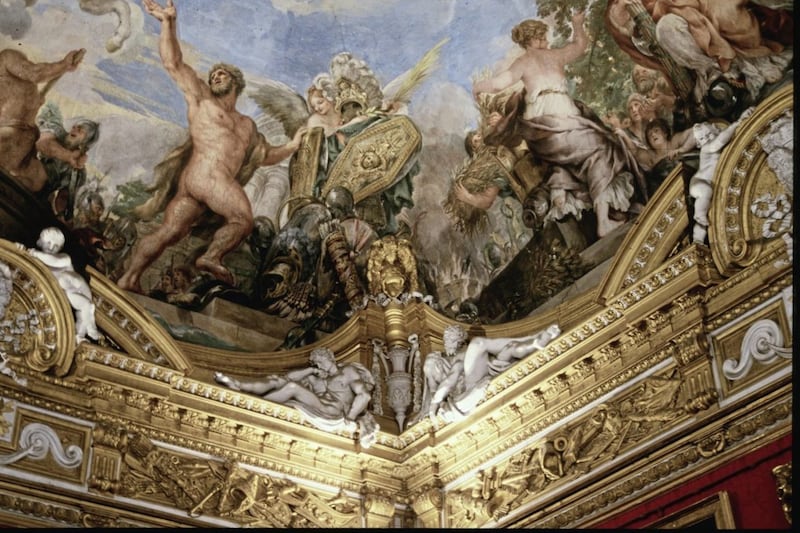SINCE the dogma of the 'Immaculate Conception' has only in roughly the last century-and-a-half been official teaching in the Catholic world, it is not altogether surprising that many - even some whose religious background is unquestionably Catholic - should still confuse this dogma with the traditional belief in the manner of Jesus' own conception.
Promulgated through Pope Pius IX's Bull Ineffabilis Deus in 1854, the 'Immaculate Conception' is still sometimes taken to refer to the conception of Jesus himself in the womb of Mary by the action of the Holy Spirit, rather than to Mary's own conception in the womb of her own mother.
To take just one example of a writer who, whatever about his later evolution, emerged from a recognisably Catholic culture: the Spanish writer, Ángel Ganivet (1865-98), at the beginning of his best-known work, Idearium español - translated as Spain: an Interpretation - appears to assume that the Immaculate Conception refers to Mary's virginity, despite her motherhood.
Ganivet uses the conceit to suggest that Spain's external history is not really at one with his country's 'virginal', deep soul.
The confusion over the meaning of the term 'Immaculate Conception' can also be found in one of Christianity's most fastidious and relentless critics, Friedrich Nietzsche.
In section 34 of The Anti-Christ, Nietzsche mentions the 'Immaculate Conception' as evidence of the Church's hostility towards human sexuality.
But from the context, it would seem that he had confused the notion of the virginal conception of Jesus, with Mary's own conception.
Yet it should also be said that before the modern age, the belief was, if not misinterpreted, still highly controversial.
The vagaries of interpretation to which the dogma of the Immaculate Conception has been subjected are no substitute for an attempt to get at the belief's true meaning
Thus the great Dominican theologian, St Thomas Aquinas, was notoriously hesitant about, not to say a forthright opponent of, the doctrine of the Immaculate Conception.
What complicates the picture even more is that for Eastern Orthodoxy, Mary becomes free of the consequences of 'original sin' the moment she conceives Jesus, rather than, as for the West, at the moment of her own conception.
And in any case, since for Eastern Orthodoxy no-one is born with the 'guilt' of 'original sin' to begin with, the notion of 'immaculate' - in the sense of 'without the stain of guilt' - conception cannot really arise.
The vagaries of interpretation, however, to which the dogma of the Immaculate Conception has in more recent times been subjected - and even its occasional rejection in the heyday of Western Christendom, striking though they may be - are no substitute for an attempt to get at the belief's true meaning, to the extent that this will ever be possible.
For it should not be forgotten that 'dogmas' are, literally, the Church's 'opinions' about the always unfathomable nature of the Christian faith. And 'opinions' are not set in stone.
As if to illustrate this point, it is interesting to note that Eastern Orthodoxy, while having a powerful belief in Mary as the Mother of God - 'Theotokos' - and celebrating the Feast of the Conception of the Blessed Virgin Mary on December 9, has, as already intimated, never accepted the doctrine of the Immaculate Conception.
One might be inclined to ask: So what? Are these not are just minor divergent ripples on the surface of Christian truth, leaving its deep ocean unaffected?
Possibly, but possibly not. What seems to be at stake in the doctrine of the Immaculate Conception is both the not insignificant question of 'original sin', from which, for Western doctrine, Mary was exempt, and also, connected with this, the issue of the extent to which human beings can cooperate with God in the working out of their salvation.
Eastern Christianity's less dire view of 'original sin' and generally sunnier view of the human capacity for cooperation with God - sometimes called 'synergism' - contrasts with the Western preoccupation with human 'fallenness' and the characteristically Western emphasis on the indispensable need for divine grace in the process of human redemption.
In the light of St Augustine's far-reaching influence on Western Christianity, with its, for some, unjustifiably pessimistic interpretation of the Christian message and even implicit invitation to self-indulgent wallowing in human 'fallenness', perhaps the Western doctrine of the Immaculate Conception could be seen as attempting, if with limited success, to reassert the fundamental goodness of human nature.
For it implies that 'original sin' is not a necessary aspect of what it is to be human and, furthermore, that human beings are perfectly capable of responding to God's call to share the divine life.
The doctrine of the Immaculate Conception might in the long run, then, be viewed as a small but not unimportant step for Western Christianity in the direction of a less Augustinian, less traumatic, and more humanly encouraging understanding of the Christian faith.
- Martin Henry, former lecturer in theology at St Patrick's College, Maynooth, is a priest of the diocese of Down and Connor






